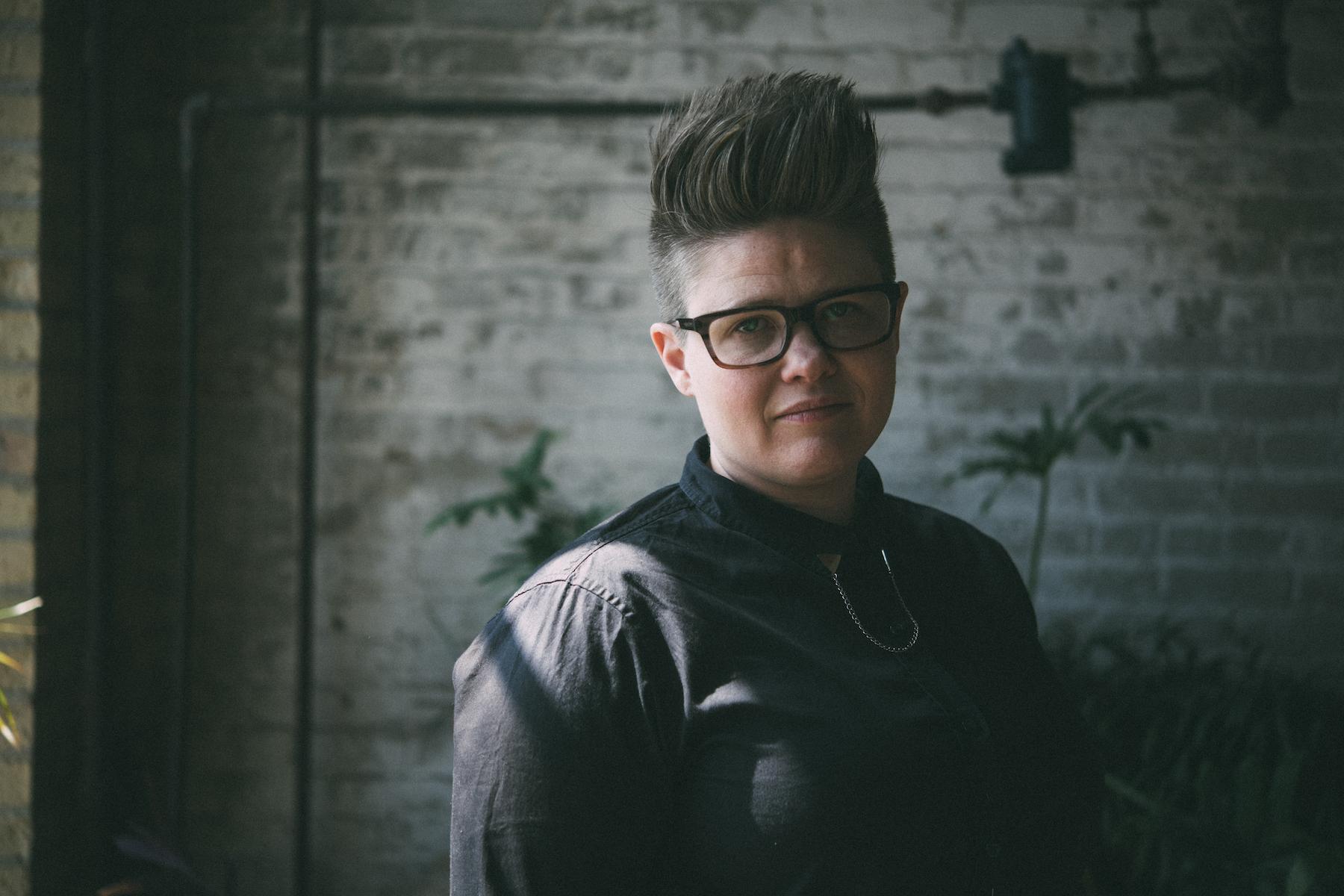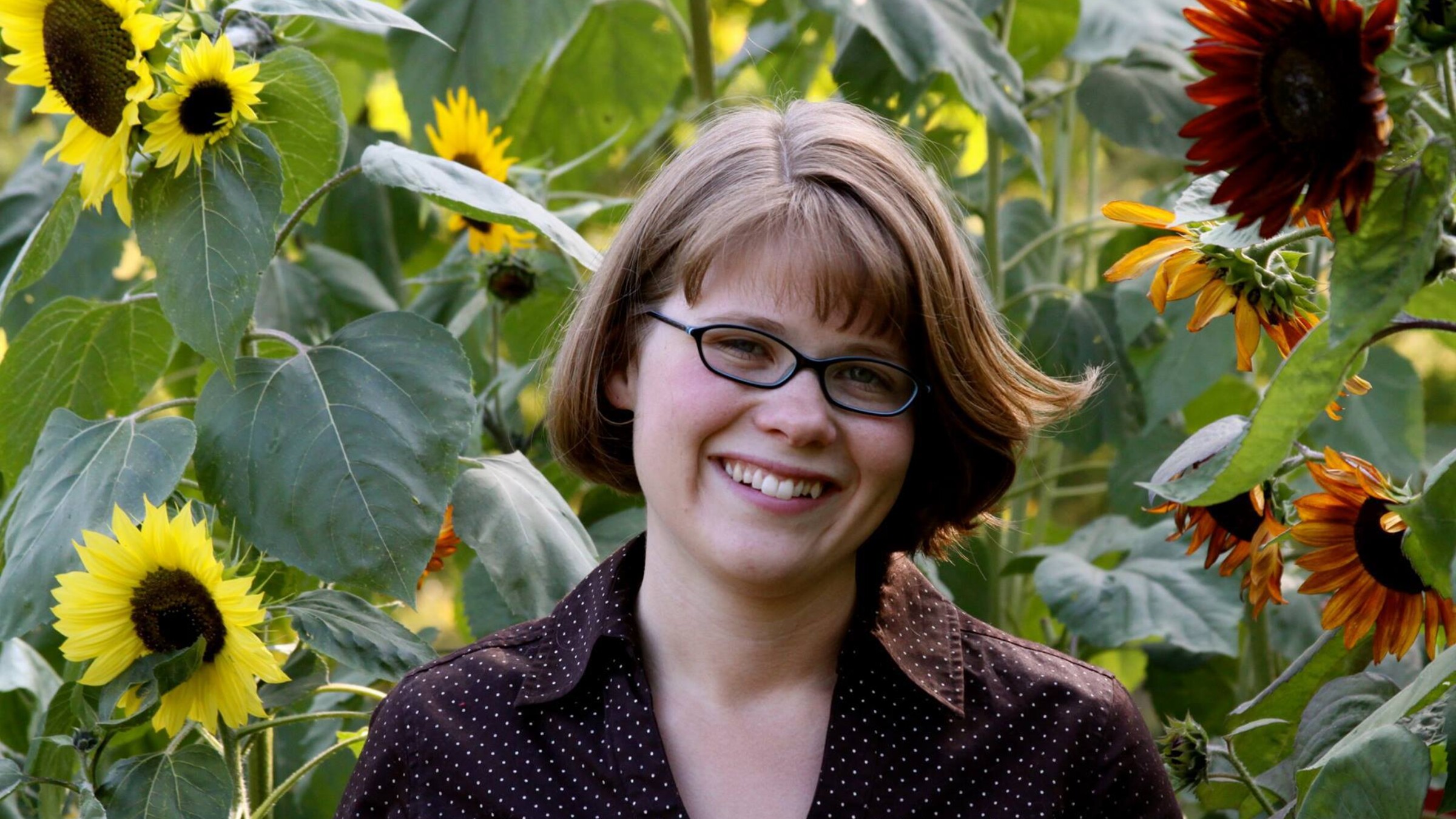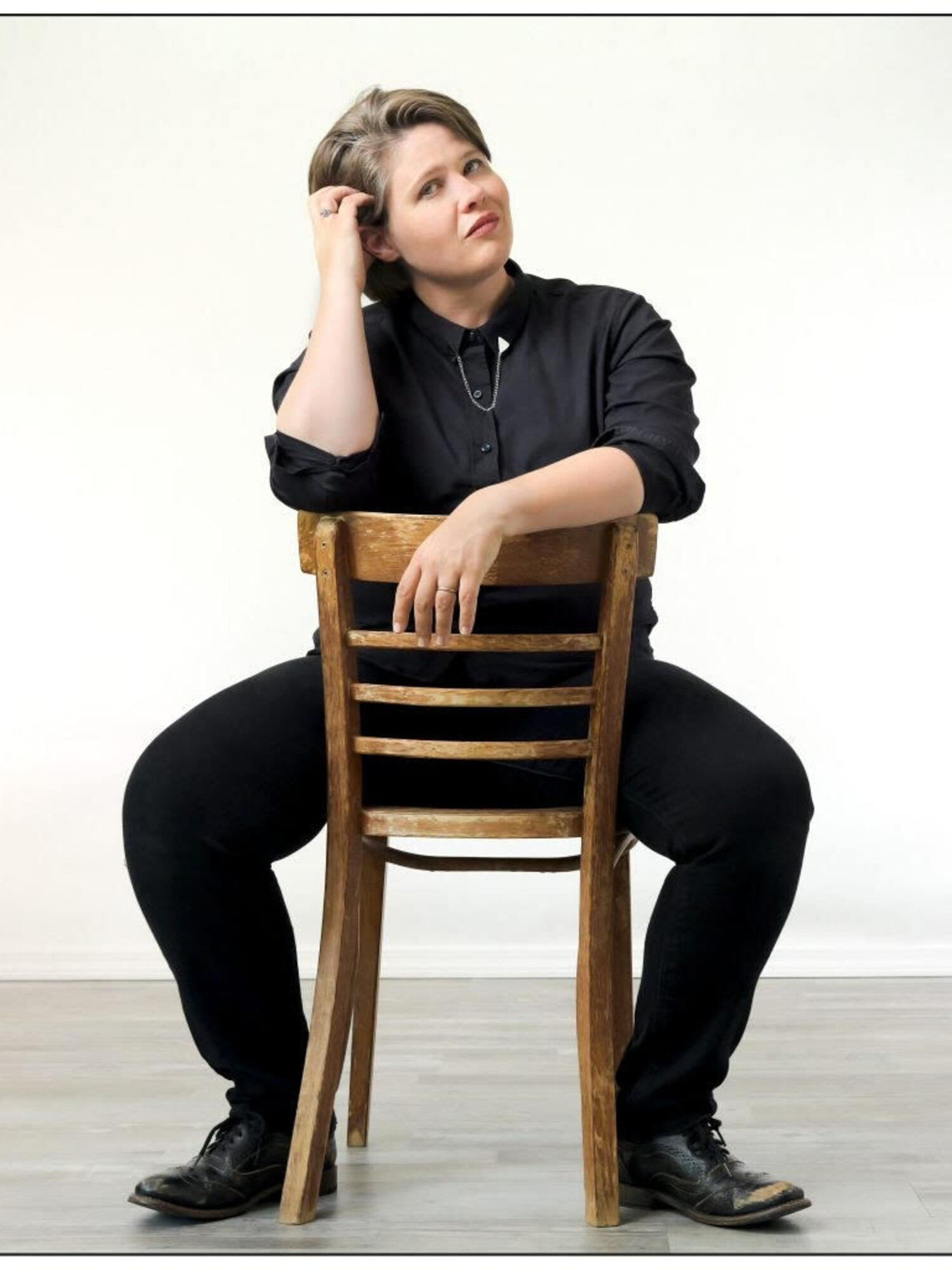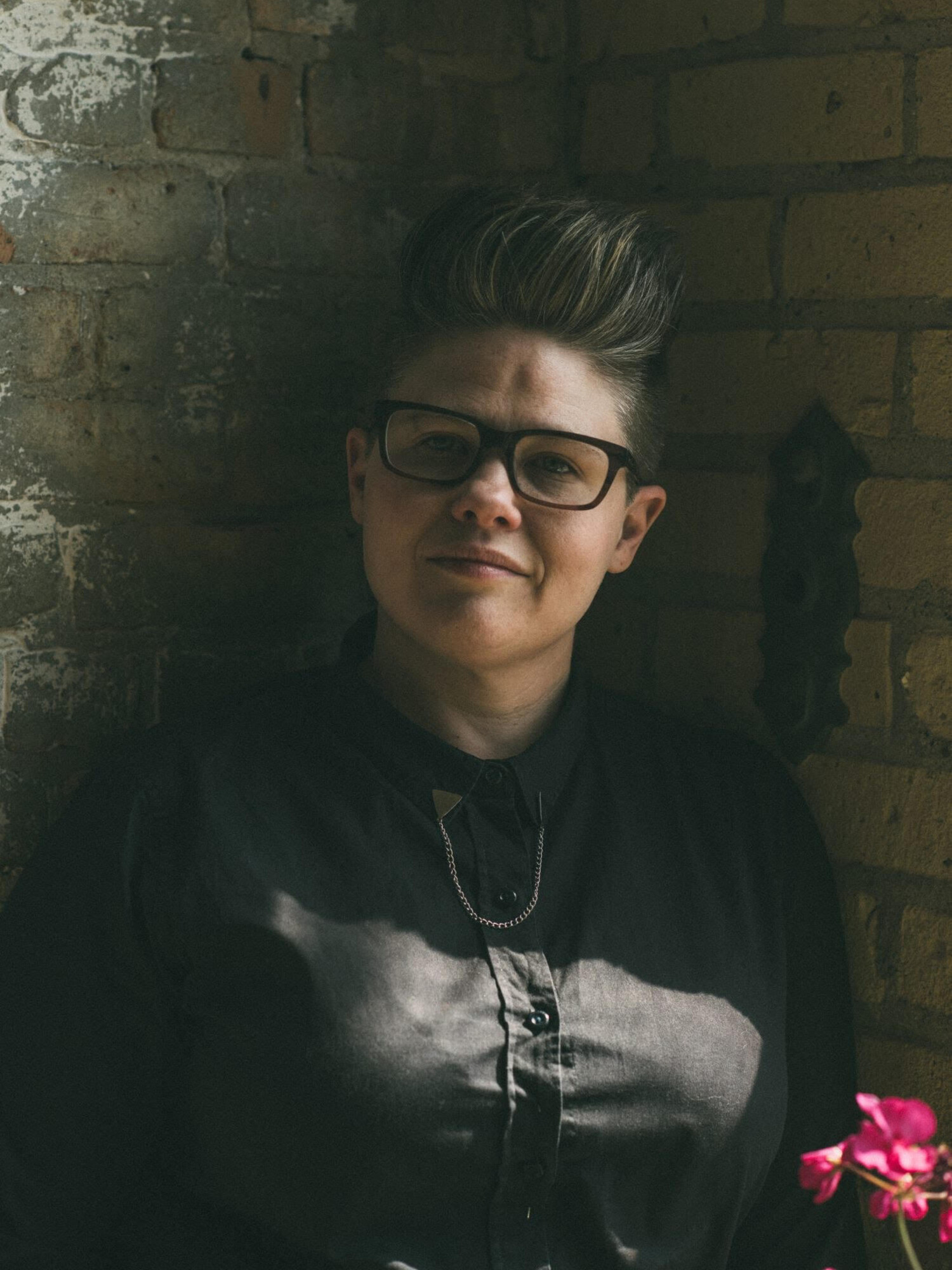
Katie Dahl: unapologetically own who you are

Katie Dahl is a singer, songwriter, and playwright, a true Renaissance woman, whose musical skill and insight, set her apart from the commonplace.
American Songwriter, said of her, ‘razor sharp lyrics with a hearty, soulful voice’. Dar Williams enthused, “Katie Dahl’s songs aren’t just melodies and words, they’re journeys that are firmly grounded in a sense of place."
That place is not only Door County, where she lives with her partner and son but, also, her cultural position as a bisexual woman. Katie’s own journey has taken some twists and turns but she is firmly grounded in her talent and in her bisexuality.
Katie was born in Wheat Ridge, Colorado into an Evangelical Baptist family. Her Father, Grandfather and a slew of Uncles were Baptist pastors and her Mother was a Baptist seminary professor.
“So, I had Baptists everywhere. And, we were very obsessed with no sex probably ever, right? Like certainly not with, certainly no queer anything. It was just like appalling to have any sort of interaction with your body in any way.”
Coming out again
Katie had a second coming out when she was a 40-ish year old person -- in a public and professional way.
“I have become a public persona and I hadn’t necessarily carried a sense of outness with me into that public persona. So, I guess there were different mentors and influences, a lot of them in pop culture. Ani diFranco is a great example of someone who just owns her queerness in a really unapologetic way and who really suffered from biphobia when she married a man. So, she is someone who is really helpful for me.”
Another close friend and professional collaborator, Julie Wolf, is the producer of her most recent recording, Seven Stones, and has been a real queer mentor. Julie identifies as a lesbian and has been accepting of Katie in a way that has healed some of the pain she felt, of feeling rejected by the larger LGBTQ community.
“Julie is someone I would give a shout out. She has really helped me own my queerness, even in queer spaces where that has felt scary.”
Katie has been connecting more with queer spaces in the past few years and feels it has been uplifting and affirming. Prior to that, she shared a feeling that is not unusual for bi+ folks that they don’t belong in queer spaces. However, at the age of 38, after many years of what she called an ‘airless room’ where she was not seen as her authentic self she decided to come out again.
“ I have wondered a lot about why at age 38 or so did it suddenly become untenable to feel like my queerness was hidden when I was in a monogamous relationship and I was not seeking anything outside of my relationship. I think a huge part of the reason was to find community, to find a greater understanding of myself, by talking to other people.”
One of the places she found to talk to other queer people was in the LGBTQ affinity community at folk conferences which has helped her to be seen authentically in public, casual, and social situations. Katie did have some concerns about being out in her professional space but has found the folk world to be supportive and has found that many of her peers are out and proud members of the LGBTQ community.
Living in rural Door County, it can sometimes make it challenging to find queer community to connect with given distance and the conservativism of the area. As a quieter, introspective, creative person it has not always felt comfortable for Katie to be loud about being proud. She credits Pete Buttigieg as someone who is fully out as a gay man but also completely comfortable with his identity as a current influence.
She feels as more people are unapologetic about their queerness more people will feel more free to be themselves.
“Queer people are able to present themselves as whole people with queerness as one part of their whole self and that is so different. I appreciate this new out era of my life. And certainly with my mom, she is a huge supporter. I have made myself small but I would never do that again.”
Katie characterizes her new recording, Seven Stones, as her adult coming out record. As her most recent musical, The Fisherman’s Daughters, ends its run on August 31 she is working on another project about Eleanor Roosevelt. It is a musical about the relationship of Eleanor and Lorena Hickock. Her tour schedule is also available on her website.
From her Evangelical upbringing. to her current thriving career as an out and proud bisexual musician, Katie Dahl has much to be excited about -- and so much more on the horizon.
 Katie Dahl
Katie Dahl
recent blog posts
December 17, 2025 | Michail Takach
December 16, 2025 | Michail Takach
December 01, 2025 | Dan Fons
The concept for this web site was envisioned by Don Schwamb in 2003, and over the next 15 years, he was the sole researcher, programmer and primary contributor, bearing all costs for hosting the web site personally.





